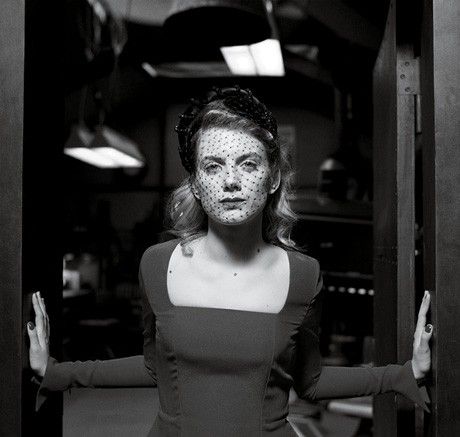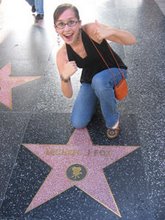Dad: "I liked it."
Me: "Me too! It was less violent than I thought it'd be, though."
Dad: "Less violent?!"
I guess Quentin Tarantino is one of those auteurs from whom you're not supposed to expect anything, really, but you're just supposed to want to go see the movie. And I did! And $37 million worth of people did! Including women! What's that, Hollywood? You say women never go to the movies? Well, anyway.
After thinking about it all day, I guess I realize that my confused expectations came from an advertising campaign that didn't quite gel with the movie I saw. However, I quite enjoyed Tarantino's latest outing. I felt pretty sure from the beginning that history was going to be more than rewritten here, and (highlight for spoilers) seeing Hitler get shot to hell in the face was incredibly satisfying.
The film is much less about Brad Pitt's Aldo Raine and the Basterds he commands than the advertising intimates. An opening sequence focusing on Col. Hans Landa (played glouriously by Christoph Waltz) interrogating a French dairy farmer (another great performance, this by Denis Menochet) introduces the character of Shosanna, a Jewish orphan on the run from Landa's murderous clutches. Shosanna (the gorgeous and stoic Mélanie Laurent) and Landa take on leading roles from almost their first moments onscreen, reducing the Basterds' significance quite a bit. Their storyline and hers intersect unintentionally, but do not really impact each other.
Diane Kruger's* Bridget von Hammersmark brings another layer of tension and complication to the Basterds' storyline. Because to be honest, they really didn't have any. I think any other filmmaker would have dedicated the whole movie to explaining their back stories, and their motivations for joining the mercenary team. Motivations other than being Jewish, that is. But instead it's just cold hard assassinatin'. It was pretty great.
I'm no Tarantino scholar. I haven't even seen Reservoir Dogs [/dodges rotten fruit]. But I do think I know enough not to expect certain things from him. Like consistency in tone or natural pacing in dialogue, or even satisfying outcomes when it comes to who lives and who dies. So I didn't really feel gypped after the movie at all, but I think that if this were someone's first Tarantino movie, they might not be so positively inclined towards the denouement. How did you feel about it, readers?

*Those of you who have not seen Kruger in Joyeux Noël definitely must. It's a Christmas war movie and it is so heartwarming/breaking.




4 comments:
I still don't know what to think. He does things no one else has ever done and I appreciate those things, but it might not be enough to overcome all the things that don't make sense and/or made sense the first time and didn't need to be seen/said twice (or more.)
And I still don't really know what The Basterds plan was, besides 'kill Germans.'
For what it's worth, here is an alternative view: http://www.newyorker.com/arts/critics/cinema/2009/08/24/090824crci_cinema_denby
I didn't think it would be fair to share it given that I haven't seen the film, although I suspect that I would agree with it if I had. Probably depends on what you think of Tarantino to begin with.
That New Yorker article is pretty interesting, and I did think about how viciousness is portrayed in this movie, on the part of the goodies (America/Jews) and the baddies (Nazis!). Then I decided that if Quentin Tarantino had wanted us to really explore this, he would have given us any backstory or follow-up at all. And he didn't. I think he just wanted to show cool bloody violence, as he often does. And I'm gonna leave it at that, for this movie.
Well, fair enough, cool bloody violence is his shtick, and you either like it or you don't, but don't you think that putting that in the setting of the West's biggest war was a little tasteless?
Post a Comment